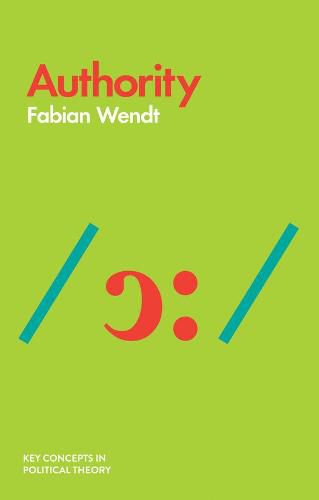Readings Newsletter
Become a Readings Member to make your shopping experience even easier.
Sign in or sign up for free!
You’re not far away from qualifying for FREE standard shipping within Australia
You’ve qualified for FREE standard shipping within Australia
The cart is loading…






From citizens paying taxes to employees following their bosses’ orders and kids obeying their parents, we take it for granted that a whole range of authorities have the power to impose duties on others. However, although authority is often accepted in practice, it looks philosophically problematic if we conceive persons as free and equals.
In this short and accessible book, Fabian Wendt examines the basis of authority, discussing five prominent theories that try to explain how claims to authority can be vindicated. Focusing in particular on the issue of how states can rightfully claim authority, he rigorously analyses the theories’ arguments and evaluates their strengths and weaknesses. He also debates anarchism as an alternative that should be taken seriously if no theory ultimately succeeds in explaining state authority.
This clear and engaging book will be essential reading for anyone grappling with the most fundamental questions of authority and obligation in political theory and political philosophy.
$9.00 standard shipping within Australia
FREE standard shipping within Australia for orders over $100.00
Express & International shipping calculated at checkout
From citizens paying taxes to employees following their bosses’ orders and kids obeying their parents, we take it for granted that a whole range of authorities have the power to impose duties on others. However, although authority is often accepted in practice, it looks philosophically problematic if we conceive persons as free and equals.
In this short and accessible book, Fabian Wendt examines the basis of authority, discussing five prominent theories that try to explain how claims to authority can be vindicated. Focusing in particular on the issue of how states can rightfully claim authority, he rigorously analyses the theories’ arguments and evaluates their strengths and weaknesses. He also debates anarchism as an alternative that should be taken seriously if no theory ultimately succeeds in explaining state authority.
This clear and engaging book will be essential reading for anyone grappling with the most fundamental questions of authority and obligation in political theory and political philosophy.